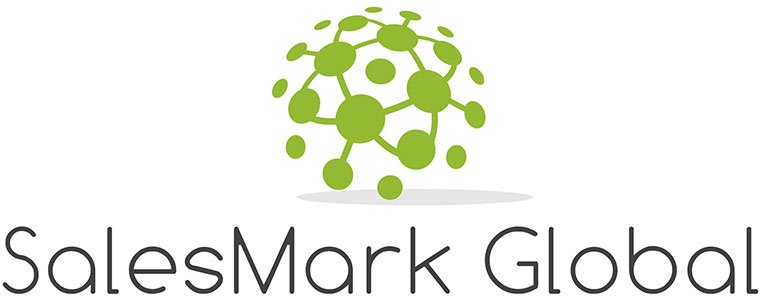Explore best practices for ethical data management in today’s digital world—build trust, ensure compliance, and protect user privacy effectively.
Data-driven innovation alongside strategic decision-making requires ethical data management approaches to be noncompromisable in modern times. Protecting the integrity of data, along with privacy and maintaining trust, has become essential because digital environments dominate how organizations and individuals conduct business. The responsible use of data through ethical practices both maintains its proper utilization and safeguards personhood rights while blocking improper access.
Table of Contents:
1. The Essence of Data Ethics in APAC
2. Five Best Practices for Ethical Data Management
2.1. Transparency and Consent
2.2. Data Minimization and Purpose Limitation
2.3. Security and Confidentialityg
2.4. Accountability and Governance
2.5. Fairness and Non-Discrimination
Conclusion
1. The Essence of Data Ethics in APAC
The APAC functions as a digital powerhouse because it contains more than 60% of the global population. This rapid digitalization of India, China, Singapore, and Australia has generated massive daily data production for both personal and B2B enterprise needs.
Looking at the intensity of the expansion of data creates ethical dilemmas about consent protocols, security measures, and algorithmic fairness, together with usage responsibility. This situation calls for data ethics laws across APAC countries; however, in the 21st century, these laws differ widely, looking at the varying public and understanding the levels of legal development needed among nations.
For instance, the PDPA framework in Singapore, the Personal Information Protection Law (PIPL) in China, the Digital Personal Data Protection Act (DPDP) in India, and the Act on the Protection of Personal Information (APPI) in Japan stand as the leading data privacy standards. On the other hand, numerous nations are still developing comprehensive guidelines that work best in creating a data secured enviroment.
Digital growth in the APAC region requires public trust through an accountable and innovative data management system that balances ethical conduct with technological development.
2. Five Best Practices for Ethical Data Management
2.1. Transparency and Consent
The practice of ethical data handling depends on transparency because organizations need to show users exactly which data they gather and why, alongside the intended usage. User trust automatically dissolves when terms are not openly displayed, so users require access to informed consent, which grants control over their data while also allowing for penalty-free choice.
Organizations need to maintain their ethical principles by using clear terms in privacy policies while using OneTrust or TrustArc consent management platforms for permission handling and by keeping users informed about all changes to data handling rules.
2.2. Data Minimization and Purpose Limitation
The process of data collection should be limited to essential information because both increased security threats and possible ethical violations result from excessive data gathering when information goes unused or unsecured. Accurate data usage demands purpose limitation, which restricts data utilization to its original use and prohibits all secondary uses unless consent is reobtained.
Organizations need to do data audits to check the validity of their data collection while employing Symantec DLP and Microsoft Purview, as these tools control and establish data storage guidelines based on business needs and regulatory requirements.
2.3. Security and Confidentiality
Data privacy and integrity depend on strong security measures as these constitute basic ethical commitments to protect data from illegal access attempts. The increasing number of cyber threats makes encryption together with anonymization practices essential along with robust access control systems. Secure access becomes possible through Zero Trust Architecture implementations, which authenticate every device and user, and by using VeraCrypt and BitLocker tools to protect data with encryption.
Multiple-factor authentication (MFA), together with role-based access controls (RBAC), creates additional security levels, and periodic penetration tests and security audits help businesses discover and fix weaknesses ahead of time.
2.4. Accountability and Governance
B2B organizations need to establish specific roles for data management to maintain ethical practices because defined responsibilities support the efficient handling of datasets. Data Protection Officers (DPOs) need to exist according to GDPR and PDPA requirements together with data governance standards that include COBIT or DAMA-DMBOK and continuous evaluation from internal boards for data-driven project ethics. Providing consistent data ethics and compliance training to employees creates two benefits: first, it promotes responsible practices across different organizational levels, and second, it establishes accountability throughout the organization.
2.5. Fairness and Non-Discrimination
The increasing use of AI and machine learning systems for critical decisions, including credit scoring and recruitment, requires immediate focus on ensuring fairness while reducing biases. The ethical requirement for data management needs ongoing inspection to detect and solve biases present in datasets and AI code. Performing Algorithmic Impact Assessments (AIA) stands as a best practice before AI system deployment, and data scientists should utilize tools from IBM AI Fairness 360, Google’s What-If Tool, and Fairlearn and promote team diversity to obtain varied perspectives during model development.
Conclusion
Organizations need to adopt ethical data management practices since they represent a fundamental need in modern digital environments. The combination of ethical principles with data practice alignment creates sustained trust for businesses, which results in increased resilience and sustainable innovation, especially within APAC dynamic markets. A transparent and accountable data management approach combined with fairness principles allows organizations to secure their data strategies for the future while building a responsible digital environment.
Visit Our SalesMarkBlog Section to Uncover the Sales Strategies That Ignite Your Sales Journey!





